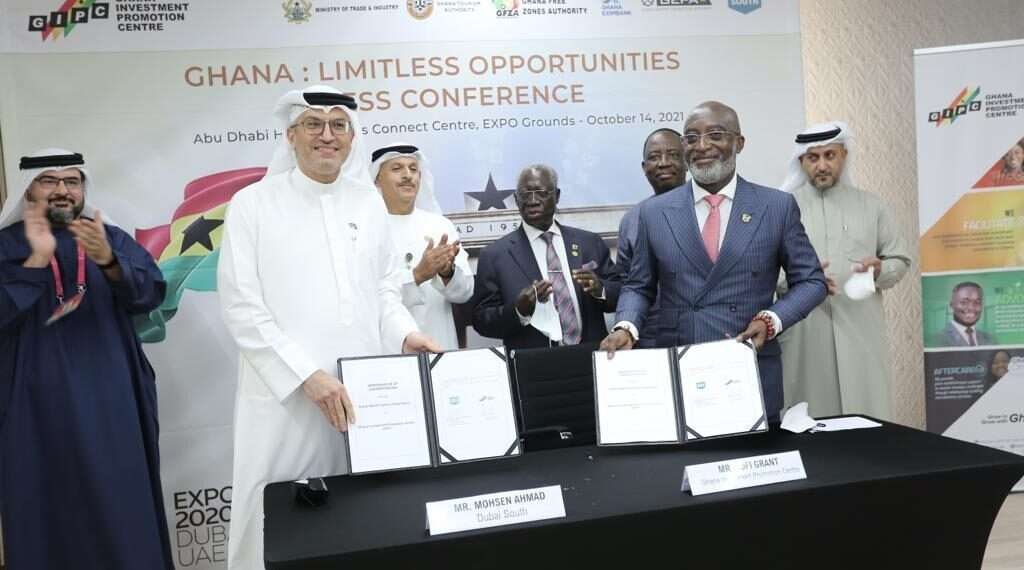The Government of Ghana has signed a Memorandum of Understanding (MoU) with the United Arab Emirates (UAE) Food and Beverage Manufacturers Group to promote Ghana’s Cocoa on the Emirati market.
Mr Yofi Grant, the Chief Executive Officer of the Ghana Investment Promotion Centre (GIPC), made this known when he delivered a keynote address at the maiden edition of the Chocolatarium- the Business of Chocolate. He indicated that three Emirati companies are already in the country to prospect for either the acquisition of old factories or the setting up of new factories for chocolate manufacturing.
According to the Chief Executive Officer, the agreement laid the foundation for investment through cocoa contract farming or chocolate production.
Mr Grant moreover, emphasised on the need for local investment into value addition of cocoa as a mainstream economic event that would help indigenous chocolate manufacturers improve their capacity to meet high demands of the product.

Earning from Cocoa Export Remains Low
Mr John Kumah, the Deputy Minister of Finance, opined that the current earnings of around US$2 billion that the country gains from cocoa production is not enough, hence the decision of government to put in place measures to install processing capacity to boost revenue.
“The current national installed cocoa processing capacity is around 544,000 tonnes indicating underutilisation of some factories. If you add what our artisanal producers are also doing, then the need for strategic focus becomes clearer.”
Mr John Kumah
Mr Kumah thus, noted that government is ready to partner local cocoa producers to improve their capacities to compete and add value to the commodity under the Ghana Cares programme.
The Deputy Finance Minister indicated that government has an agenda of increasing local consumption of cocoa by modernising production system through the cocoa productivity enhancement programme, which contributed to the country setting a production record of 1.033 million tonnes of beans for the 2020/2021 season.
“I am confident that interventions, including rehabilitation of cocoa farms, merchanised pruning, fertiliser subsidies, hand spraying, artificial hand pollination, irrigation and distribution of cocoa seeds and continuous farmer education on good agronomic practices will continue to yield results.”
Mr Kumah
Tourism and Hospitality Industry Needed to Boost Production
Mr Kumah added that any attempt to boost local production cannot be done without the involvement of the hospitality and tourism sector.
Agnes Gifty Adjei-Sam, Director, Marketing and Promotion at the Ghana Export Promotion Authority (GEPA), in a statement on behalf of Dr Afua Asabea Asare, the GEPA CEO, emphasised that processing of cocoa and its derivates remained a priority in the National Export Development strategy.
“We are optimistic that our concerted effort will be of immense benefit to our country and most especially create opportunity to upscale chances of our youth and women.”
Dr. Afua Asabea Asare
The GEPA CEO noted that the agreement has the potential to support youth employment, increase rural incomes and boost the economy at large.
Cocoa production in Ghana supports the livelihoods of approximately 4 million farming households. However, cocoa yields remain stubbornly low, in addition to that, it exports mainly raw cocoa beans. Therefore, Dr. Asare iterated that the partnership will generate the needed revenue for the country.
READ ALSO: Salaries Are Validated Every Month Before They Are Paid- GES




















